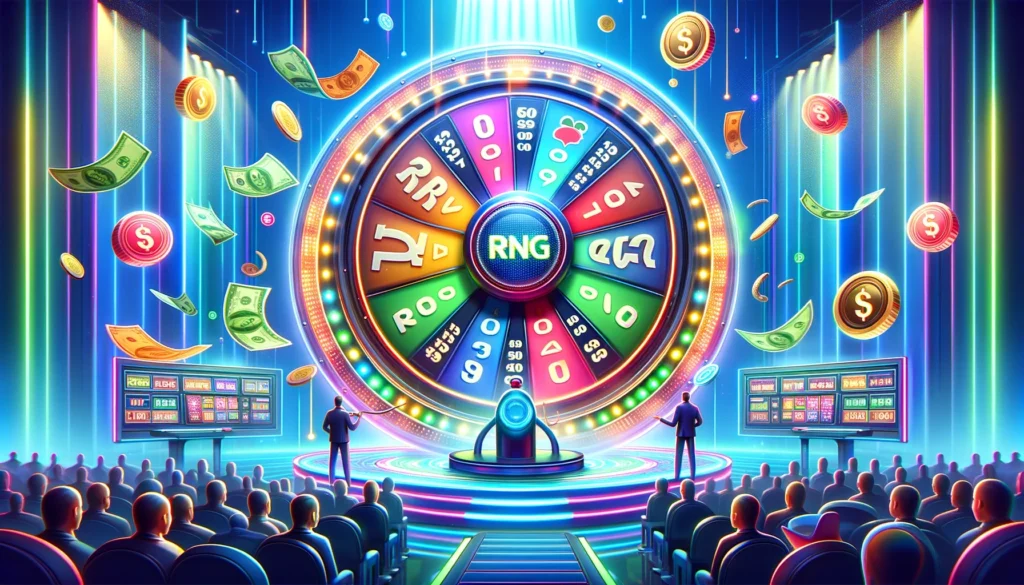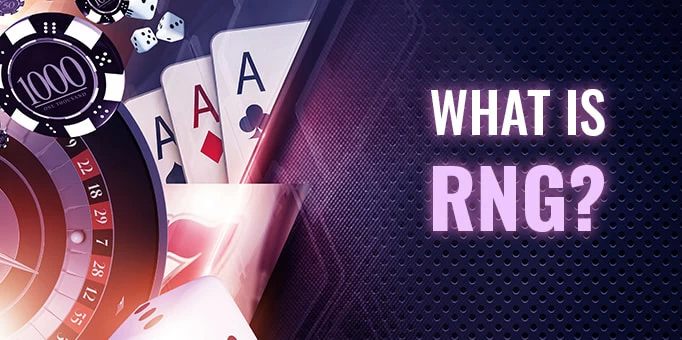The world of online gambling relies heavily on fairness, transparency, and trustworthiness to attract and retain players. One of the most important technological tools used to ensure fairness in online casinos—especially in online slots—is the Random Number Generator (RNG). In this article, we will explore what an RNG is, how it works, and why it is crucial to the integrity of online slot games. Additionally, we’ll discuss the role of third-party auditors and why you should always choose licensed and regulated casinos for a safe gaming experience.
What is a Random Number Generator (RNG) and How Does It Work?
At its core, a Random Number Generator (RNG) is a software algorithm designed to produce random outcomes. These outcomes are unpredictable, which makes them ideal for use in online games where chance plays a central role, such as online slots.
An RNG in online slots works by continuously generating numbers at an incredibly fast rate, even when the game is not being played. When you press the “spin” button in an online slot game, the RNG determines the result of the spin by selecting a set of numbers that correspond to the symbols displayed on the reels. The numbers are mapped to the symbols on the virtual reel, and the outcome of your spin is based on where the RNG chooses to stop.
For example, if you’re playing a slot with 10 symbols per reel and 5 reels, the RNG will randomly generate numbers that correspond to the positions of those symbols. These numbers determine the result of each spin, from the payout of a single symbol to the formation of a winning combination or triggering bonus rounds.
How RNGs Ensure Fairness in Online Slots and Other Casino Games
The RNG is what guarantees that the outcome of each spin or game round is completely random and unpredictable. This is crucial for fairness, as it ensures that:
- No External Influence: The outcome of your spin is determined solely by the RNG. The game is not influenced by past spins, your betting patterns, or any other factor. This means that there is no way for a player (or the casino) to alter the outcome of a game.
- Equal Chances for All Players: Since the RNG ensures random outcomes, every player has an equal chance of winning. The same probability applies whether you play a game once or a thousand times. In other words, the RNG ensures fairness by eliminating biases in the game’s outcome.
- Game Integrity: Without an RNG, casinos could theoretically manipulate the results to benefit themselves or favor certain players. However, RNGs maintain the integrity of the game, ensuring that the results are based purely on luck, just like they would be in a physical casino.
- Predictable RTP (Return to Player): RNGs are programmed to deliver a specific Return to Player (RTP) percentage over a large number of spins. RTP is a theoretical value that indicates how much the game will pay back to players over time. For example, a slot with an RTP of 95% will return 95% of all wagers back to players in the long run. The RNG ensures that this RTP is met fairly across many spins.

The Role of Third-Party Auditors in Testing RNGs
While RNGs are responsible for the fairness of online slots, third-party auditors play a critical role in ensuring that RNGs are working correctly and that games are fair for players.
Independent Testing and Certification
Third-party auditing agencies such as eCOGRA, iTech Labs, and GLI (Gaming Laboratories International) are responsible for testing the RNGs used in online slots and other casino games. These auditors run a variety of tests to ensure that:
- RNGs are generating truly random outcomes: The auditors perform statistical analysis to ensure that the numbers generated by the RNG are distributed randomly and that no patterns can be detected.
- Games meet the advertised RTP: Auditors check to make sure that the RTP of a slot game matches the figure advertised by the casino and that it falls within an acceptable range for fair play.
- No manipulation occurs: Testing ensures that the RNG cannot be tampered with, and that the software is not influenced by external factors, such as a casino trying to alter the odds.
Periodic Audits
Auditors don’t just test RNGs once and leave them unchecked. Most reputable auditing firms carry out periodic audits to ensure that the RNGs remain compliant and that games continue to offer fair and random outcomes over time.
By testing RNGs and certifying games, third-party auditors provide an additional layer of trust for players. Their involvement assures players that the games they are playing are not rigged, and that they can expect fair outcomes based on chance.
Why You Should Only Play on Licensed and Regulated Casinos
Even though RNG technology and third-party audits are essential for ensuring fairness, it’s still crucial to play at licensed and regulated online casinos. Here’s why:
1. Legitimate Operations
A licensed and regulated online casino is required to operate within a set of rules and standards established by the regulatory body. These bodies—such as the UK Gambling Commission, Malta Gaming Authority (MGA), or the Gambling Control Commission (GCC)—ensure that casinos are providing fair games, including RNG-based slots, and adhere to strict standards for player protection.
2. RNG Certification
Licensing bodies often require casinos to submit their games and RNG software for regular audits and testing by independent third-party auditors. This ensures that RNGs are functioning properly and that games are fair and random. If a casino is unlicensed, there’s no guarantee that the games are tested or comply with regulatory standards.
3. Player Protection
Regulated casinos are also required to implement responsible gambling measures, such as self-exclusion options, deposit limits, and access to gambling addiction resources. Playing at a licensed casino ensures that your personal and financial information is protected, and you can expect prompt and secure payouts when you win.
4. Fair Dispute Resolution
Licensed casinos are held accountable by their regulators. If you have a dispute with a casino, you can contact the regulatory body for assistance, and they will mediate to resolve the issue. On the other hand, unlicensed casinos may not offer reliable support, leaving you vulnerable to unfair practices or non-payment.
Conclusion
The Random Number Generator (RNG) is the backbone of fairness in online slot machines and other casino games. It ensures that the outcomes of games are entirely random, giving every player a fair chance to win, regardless of previous spins or betting behavior. RNGs also help maintain transparency and the integrity of online gambling, so players can trust that the games they play are not rigged.
To further guarantee fairness, third-party auditors regularly test and certify RNG software, providing an additional layer of security and trust for players. Finally, to ensure the most secure and fair gaming experience, always play at licensed and regulated casinos, as they are subject to strict oversight and compliance with industry standards.
By understanding how RNGs work and choosing licensed casinos, players can enjoy a safe, fair, and enjoyable gambling experience, knowing that every spin of the reels is determined by luck and chance, just as it should be.
